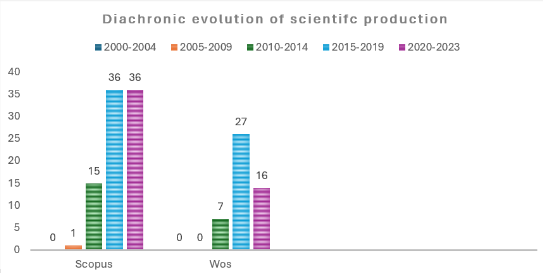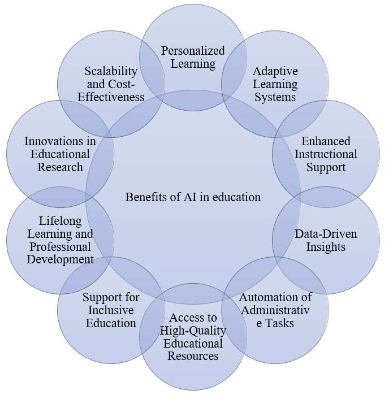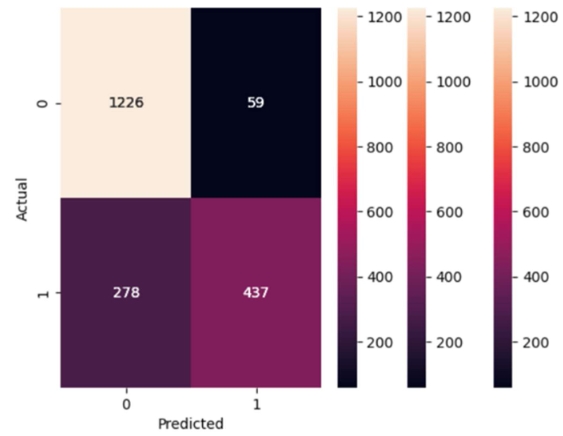Digital education in Germany: Policies, teacher perspectives, and challenges in a post-pandemic world
Abstract
This article intends to conduct a theoretical examination of education and technology public policies proposed for the German school system, under a post-pandemic context in which governments around the world have strengthened their pedagogical initiatives in digital technologies in the school environment. The results presented here are part of the research “Post-pandemic education: understanding of analogic education and digital education from the perspective of educational institutions and teachers in Brazil and Germany”, carried out between 2023 and 2024. As a method, we conducted extensive documentary research that analyzed within the context of technology-mediated educational policies in Germany, in a global context. We sought to relate these policies to a possible change in school education that can also reposition teacher training in the country. In the German context, the article describes the education system, digital education policies and the challenges in their implementation. The results show important avenues for changes in teacher training for the use of technology and the need for additional research to assess the impact of digital education.
References
[1]Arruda EP, Kerres M. Education Practices Mediated by Digital Technologies: Mobilization and Teachers’ Strategies in Primary and Secondary Schools in Germany. Education Sciences. 2024; 14(8): 838. doi: 10.3390/educsci14080838
[2]Teräs M, Suoranta J, Teräs H, et al. Post-Covid-19 Education and Education Technology ‘Solutionism’: a Seller’s Market. Postdigital Science and Education. 2020; 2(3): 863-878. doi: 10.1007/s42438-020-00164-x
[3]Sintema EJ. Effect of COVID-19 on the Performance of Grade 12 Students: Implications for STEM Education. Eurasia Journal of Mathematics, Science and Technology Education. 2020; 16(7). doi: 10.29333/ejmste/7893
[4]Kerres M. Against All Odds: Education in Germany Coping with Covid-19. Postdigital Science and Education. 2020; 2(3): 690-694. doi: 10.1007/s42438-020-00130-7
[5]Arruda EP. Emergency remote education: elements for public policies in Brazilian education in times of Covid-19. In Rede-Journal of Distance Education. 2020.
[6]Selwyn N. Looking beyond learning: notes towards the critical study of educational technology. Journal of Computer Assisted Learning. 2010; 26(1): 65-73. doi: 10.1111/j.1365-2729.2009.00338.x
[7]Buckingham D. Digital Media Literacies: Rethinking Media Education in the Age of the Internet. Research in Comparative and International Education. 2007; 2(1): 43-55. doi: 10.2304/rcie.2007.2.1.43
[8]Moursund D, & Bielefeldt T. Will new teachers be prepared to teach in a digital age? A national survey on information technology in teacher education; 1999.
[9]Papert S. The children’s machine: Rethinking school in the age of the computer. New York; 1993.
[10]UNESCO. Technology in Education: A Tool on Whose Terms. Glob. Educ. Monit. Rep; 2023.
[11]Olofsson AD, Fransson G, Lindberg JO. A study of the use of digital technology and its conditions with a view to understanding what ‘adequate digital competence’ may mean in a national policy initiative. Educational Studies. 2019; 46(6): 727-743. doi: 10.1080/03055698.2019.1651694
[12]Komljenovic J. The rise of education rentiers: digital platforms, digital data and rents. Learning, Media and Technology. 2021; 46(3): 320-332. doi: 10.1080/17439884.2021.1891422
[13]Esteve A. The business of personal data: Google, Facebook, and privacy issues in the EU and the USA. International Data Privacy Law. 2017; 7(1): 36-47. doi: 10.1093/idpl/ipw026
[14]Decuypere M, Grimaldi E, Landri P. Introduction: Critical studies of digital education platforms. Critical Studies in Education. 2021; 62(1): 1-16. doi: 10.1080/17508487.2020.1866050
[15]Grimaldi E, Ball SJ. Paradoxes of freedom. An archaeological analysis of educational online platform interfaces. Critical Studies in Education. 2020; 62(1): 114-129. doi: 10.1080/17508487.2020.1861043
[16]Marone M, Van Durme B. Data portraits: Recording foundation model training data. Advances in Neural Information Processing Systems; 2024.
[17]Statistisches Bundesamt (Destatis). Genesis-Online. Available online: https://www.destatis.de/DE/Home/_inhalt.html (accessed on 1 June 2024).
[18]Marshall TH. Sociology at the Crossroads and Other Essays. Heinemann: London, UK; 1963.
[19]Cubberley EP. Readings in the History of Education. Houghton Mifflin: Boston, MA, USA; 1920.
[20]Pinto ÁV. The Concept of Technology. Counterpoint: Rio de Janeiro, Brazil; 2005.
[21]Cury CRJ. For a National Education System. Moderna: São Paulo, Brazil; 2010.
[22]Muller JZ. Capitalism and inequality: What the right and the left get wrong. Foreign Aff; 2013.
[23]Beck EM, Colclough GS. Schooling and capitalism: the effect of urban economic structure on the value of education. In Industries, Firms, and Jobs; 2017.
[24]Schumpeter JA. Capitalism, Socialism and Democracy. Routledge. 2013.
[25]ARRUDA EP. Implementation of digital technologies in the curricula of basic education schools in OECD member countries. (Portuguese). Subsídios à elaboração da BNCC; 2018.
[26]Frankema E, & Van Waijenburg M. The great convergence. Skill accumulation and mass education in Africa and Asia; 2019.
[27]Ramirez FO, Boli J. The Political Construction of Mass Schooling: European Origins and Worldwide Institutionalization. Sociology of Education. 1987; 60(1): 2. doi: 10.2307/2112615
[28]European Commission (2024). Digital learning and ICT in education. Available online: https://digital-strategy.ec.europa.eu/en/policies/digital-learning (accessed on 20 May 2024).
[29]Pressick-Kilborn K, Buchanan J, Maher D. Promoting Environmental Education for Primary School-aged Students Using Digital Technologies. EURASIA Journal of Mathematics, Science and Technology Education. 2018; 15(2). doi: 10.29333/ejmste/100639
[30]Kerres, M., McElvany, N., Lorenz, R., et al. Education in the digital world: (How) Can digital literacy be taught? In Learning in and for Schools in the Age of Digitality—Opportunities and Challenges for Teachers, Teaching and Learners. (German). Münster: Waxmann; 2023.
[31]Tigert JJ. Radio in the American School System. The ANNALS of the American Academy of Political and Social Science; 1929.
[32]Gee JP. Why video games are good for your soul: Pleasure and learning. Common Ground; 2005.
[33]Turkle S. The second self: Computers and the human spirit. Mit Press; 2005.
[34]Arruda EP. Learning and digital games. Campinas: Alínea; 2011.
[35]Arruda EP. Digital skills shortages and curricula options in Brazilian PhD programs in education. Environment and Social Psychology. 2023; 9(1). doi: 10.54517/esp.v9i1.1859
[36]Haleem A, Javaid M, Qadri MA, et al. Understanding the role of digital technologies in education: A review. Sustainable Operations and Computers. 2022; 3: 275-285. doi: 10.1016/j.susoc.2022.05.004
[37]UNESCO. Global Education Monitoring Report 2023: Technology in education—A tool on whose terms? Paris, UNESCO; 2023.
[38]Vasquez Cano LY. (2022). Study of sustainable construction for the improvement of the urban image in the district of San Juan de Lurigancho. (Spanish). Universidad César Vallejo; 2022.
[39]Mao H, Liu S, Zhang J, et al. Information technology resource, knowledge management capability, and competitive advantage: The moderating role of resource commitment. International Journal of Information Management. 2016; 36(6): 1062-1074. doi: 10.1016/j.ijinfomgt.2016.07.001
[40]Ertmer PA. Teacher pedagogical beliefs: The final frontier in our quest for technology integration? Educational Technology Research and Development. 2005; 53(4): 25-39. doi: 10.1007/bf02504683
[41]BMBF. Grundsatzpapier des Bundesministeriums für Bildung und Forschung zur Wissenschaftskommunikation. Available online: https://www.bmbf.de/upload_filestore/pub/Grundsatzpapier_zur_Wissenschaftskommunikation.pdf (accessed on 25 May 2024).
[42]Dogan ME, Goru Dogan T, Bozkurt A. The Use of Artificial Intelligence (AI) in Online Learning and Distance Education Processes: A Systematic Review of Empirical Studies. Applied Sciences. 2023; 13(5): 3056. doi: 10.3390/app13053056
[43]Tiede J, & Grafe S. The Integration of Media-Related Studies and Competencies into US and German Initial Teacher Education. A Cross-National Analysis of Contemporary Practices and Trends. In: Society for Information Technology & Teacher Education International Conference. Association for the Advancement of Computing in Education (AACE); 2019.
[44]Webb M, Doman E. Impacts of flipped classrooms on learner attitudes towards technology-enhanced language learning. Computer Assisted Language Learning. 2019; 33(3): 240-274. doi: 10.1080/09588221.2018.1557692
[45]Storte D, Webb M, Bottino R, et al. Coding, programming and the changing curriculum for computing in schools. In: Proceedings of the Report of UNESCO/IFIP TC3 Meeting at OCCE; Linz, Austria; 2019.
[46]Okoye K, Hussein H, Arrona-Palacios A, et al. Impact of digital technologies upon teaching and learning in higher education in Latin America: an outlook on the reach, barriers, and bottlenecks. Education and Information Technologies. 2022; 28(2): 2291-2360. doi: 10.1007/s10639-022-11214-1
[47]Dirckinck-Holmfeld L, Ipsen BJ, Tamborg AL, et al. Modes of Teacher Participation in the Digitalization of School. Designs for Learning. 2019; 11(1): 63-71. doi: 10.16993/dfl.109
[48]Wohlfart, O., & Wagner, I. (2023). Digitale Transformation unter Berücksichtigung zentraler Funktionen des Schulsystems–welchen Beitrag leistet der Digital-Pakt Schule 2019–2024?. PraxisForschungLehrer* innenBildung. Zeitschrift für Schul-und Professionsentwicklung.(PFLB), 5(1), 246-257.
[49]Sailer M, Murböck J, Fischer F. Digital learning in schools: What does it take beyond digital technology? Teaching and Teacher Education. 2021; 103: 103346. doi: 10.1016/j.tate.2021.103346
[50]Burke PF, Schuck S, Aubusson P, et al. Exploring teacher pedagogy, stages of concern and accessibility as determinants of technology adoption. Technology, Pedagogy and Education. 2017; 27(2): 149-163. doi: 10.1080/1475939x.2017.1387602
[51]Kong SC, Abelson H. Computational Thinking Education. Springer Singapore; 2019.
[52]BMBF. Karliczek: In Zeiten von Corona fördern wir digitales Lernen wie noch nie zuvor. Available online: https://www.bmbf.de/de/karliczek-in-zeiten-von-corona-foerdern-wir-digitales-lernen-wie-noch-nie-zuvor-11453.html (accessed on 15 July 2024).
[53]KMK (Sekretariat der Ständigen Konferenz der Kultusminister der Länder in der Bun-desrepublik Deutschland) & BMBF (Bundesministerium für Bildung und For-schung) (Hrsg). DigitalPakt Schule von Bund und Ländern. Gemeinsame Erklärung. Available online: https://www.dstgb.de/aktuelles/archiv/archiv-2017/dstgb-zu-den-eck punkten-der-bund-laender-vereinbarung-digitalpaktschule/ergebnis-eckpunkte-st-ag-230517.pdf?cid=7p2 (accessed on 15 July 2024).
[54]Wohlfart O, & Wagner I. (2022). “DigitalPakt Schule 2019 bis 2024”—Analysis of the structural digitization of the education system in Germany. (German). PraxisForschungLehrer*innenBildung; 2022.
[55]BMBF. Wissenswertes zum DigitalPakt Schule. Available online: https://www.bmbf.de/de/wissenswertes-zum-digitalpakt-schule-6496.html (accessed on 15 July 2024).
[56]Hepp A. Cultures of mediatization. John Wiley & Sons; 2013.
[57]Lund A, Furberg A, Bakken J, et al. What Does Professional Digital Competence Mean in Teacher Education? Nordic Journal of Digital Literacy. 2014; 9(4): 280-298. doi: 10.18261/issn1891-943x-2014-04-04
[58]Mattar J, Ramos DK, Lucas MR. DigComp-Based Digital competence Assessment Tools: Literature Review and Instrument Analysis. Education and Information Technologies. 2022; 27(8): 10843-10867. doi: 10.1007/s10639-022-11034-3
[59]Lang M. Teacher development of computer use in education in Germany. Education and information technologies; 2000.
[60]Clark-Wilson A, Robutti O, Sinclair N, et al. The Mathematics Teacher in the Digital Era. Springer Netherlands; 2014.
[61]Braun T, Büsch A, Dander V, et al. Position paper on further development of the KMK-Strategy ‹Bildung in der digitalen Welt›. MedienPädagogik: Zeitschrift für Theorie und Praxis der Medienbildung; 2021.
[62]Thyssen C, Huwer J, Irion T, et al. From TPACK to DPACK: The “Digitality-Related Pedagogical and Content Knowledge”—Model in STEM-Education. Education Sciences. 2023; 13(8): 769. doi: 10.3390/educsci13080769
[63]Thorvaldsen S, Sollied Madsen S. Decoding the Digital Gap in Teacher Education: Three Perspectives across the Globe. Teacher Education in the 21st Century - Emerging Skills for a Changing World. IntechOpen; 2021.
[64]Fernández-Batanero JM, Montenegro-Rueda M, Fernández-Cerero J, et al. Digital competences for teacher professional development. Systematic review. European Journal of Teacher Education. 2020; 45(4): 513-531. doi: 10.1080/02619768.2020.1827389
[65]Sarker MNI, Wu M, Cao Q, et al. Leveraging Digital Technology for Better Learning and Education: A Systematic Literature Review. International Journal of Information and Education Technology. 2019; 9(7): 453-461. doi: 10.18178/ijiet.2019.9.7.1246
Copyright (c) 2024 Eucidio Pimenta Arruda, Suzana dos Santos Gomes, Durcelina Pimenta Arruda

This work is licensed under a Creative Commons Attribution 4.0 International License.









